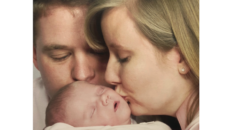Regardless of where you live, or where you plan to adopt, you’ll need to complete a home study. This is a document that contains the story of your life: your family and marital history, your health, your financial situation. It includes a description of your home and neighborhood, as well as personal references and discussion of any health concerns or any criminal record.
If the thought of opening up your home and your life to a stranger makes you squeamish, you’re not alone. People often worry that they will be found ineligible to adopt. In reality, it’s rare for a home study to end with a negative recommendation. While the process may seem invasive, remember that the goal is to make sure children are placed in homes where they’ll be loved and protected.
In general, the home study is a social worker’s written evaluation, based on interviews with you during at least one visit to your home. If you adopt independently with a lawyer’s help, you will use an agency or an independent, state-licensed social worker for the home study. If you adopt internationally via an agency, or in a state other than your own, you must use an agency or a professional who is licensed in your home state. The home study fee can range from $1,000 to $3,000.
While the social worker will want to know how you plan to accommodate a new arrival, your home doesn’t have to be child-proofed, with a furnished nursery, prior to the visit. Nor do you need to have a separate bedroom for a baby.
If you have a medical or financial problem, or a prior arrest record that you fear might result in an unfavorable home study, experts advise that you don’t wait to mention it.
The following concerns are common among those seeking to adopt. While each situation is different, general guidelines apply:
- Conviction record: Minor misdemeanors usually aren’t held against prospective adopters, although a social worker will want to know if your past behavior is just that. However, if you have committed a felony, the U.S. government won’t approve you to adopt internationally, and you might have trouble finding a domestic agency to accept you.
- Health conditions or disabilities: An agency will want to know that you can care for a child long-term. If you are in the middle of medical treatment, or have a condition that threatens your life expectancy, you may be prevented from adopting.
- Financial problems: You don’t need to be rich to adopt. But a history of bankruptcy, high debt, or failure to pay child support may be cause for denial.




